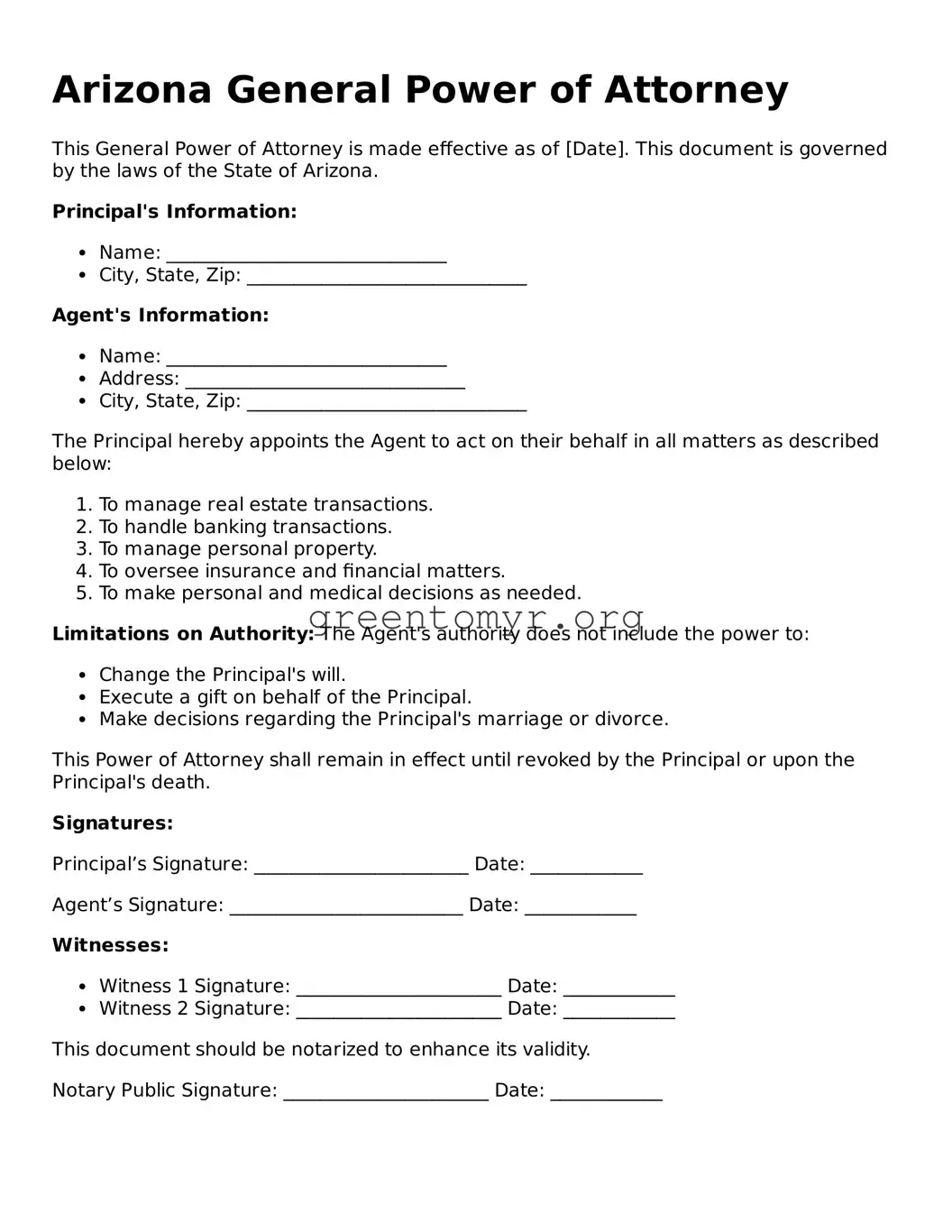What is a General Power of Attorney in Arizona?
A General Power of Attorney (POA) in Arizona is a legal document that gives someone the authority to act on another person's behalf. This document allows the designated person, known as the agent or attorney-in-fact, to manage financial matters and make decisions for the person who created the POA, also called the principal. The powers granted can include handling bank transactions, managing real estate, and making investments.
Why should I consider creating a General Power of Attorney?
Creating a General Power of Attorney can provide peace of mind. It ensures that someone you trust will manage your affairs if you become unable to do so due to health reasons or other circumstances. This can prevent potential issues or conflicts among family members when decisions need to be made quickly.
Who can be my agent in a General Power of Attorney?
Your agent can be anyone you trust to manage your affairs. This may include a family member, friend, or professional such as an attorney or accountant. However, it’s crucial to choose someone responsible and capable. The agent should understand your wishes and be willing to act in your best interest.
What powers can I grant my agent in a General Power of Attorney?
You can grant your agent broad powers or limit their authority as you see fit. Common powers include:
-
Managing bank accounts.
-
Buying or selling real estate.
-
Handling investments and stocks.
-
Paying bills and managing debts.
Be sure to specify any limitations or conditions in the document to ensure your preferences are clear.
Does a General Power of Attorney expire?
Yes, a General Power of Attorney can expire based on specific conditions. Typically, it remains valid as long as the principal is alive and capable of making decisions. It will end if the principal revokes it or passes away. Be mindful that a new document will need to be created if you wish to change your agent or update the powers granted.
Can a General Power of Attorney be revoked?
Yes, a principal can revoke a General Power of Attorney at any time as long as they are mentally competent. To revoke, you should create a written notice expressing your desire to cancel the previous POA and provide copies to your agent and any institutions involved. It’s wise to inform all parties who relied on the original document to avoid confusion.
Do I need to have my General Power of Attorney notarized?
In Arizona, it is generally recommended to have your General Power of Attorney notarized. While notarization may not be strictly required for a POA to be valid, having a notary can help ensure that the document is recognized and accepted by financial institutions and other entities. Notarization adds an extra layer of verification to the signing process.
